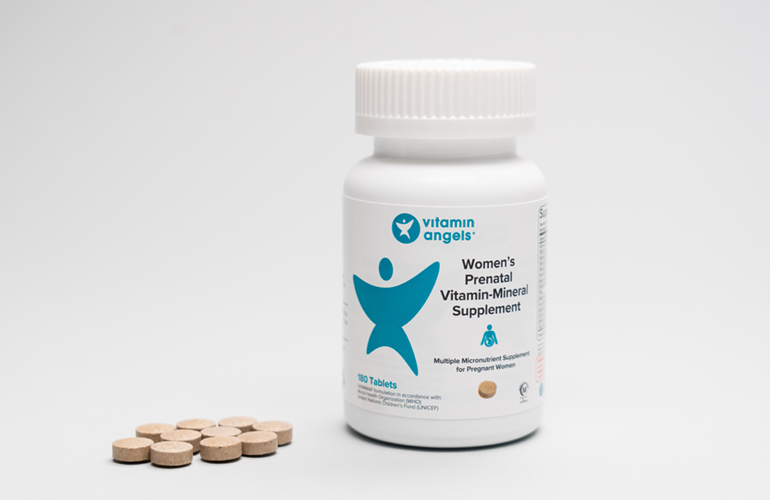Blue Cross and Blue Shield of Texas' Special Beginnings® maternal and infant health initiative joined with global public health nonprofit Vitamin Angels to improve outcomes for Texas moms and babies. The collaboration aims to help those in need who are pregnant, postpartum or planning to become pregnant receive essential vitamins and minerals needed to support a healthy pregnancy.
According to Vitamin Angels, 1 million pregnant women in the U.S. lack access to essential nutrients. BCBSTX provided a $300,000 grant to the nonprofit, whose mission is to improve maternal and child nutrition. With the funding, the organization is helping eligible providers, clinics and community organizations distribute no-cost prenatal vitamins and minerals to clients and patients.
Through this collaboration, 14,700 six-month supplies of prenatal vitamins and minerals were distributed to Special Beginnings community grantees across the state.
“We want to reduce barriers for women to receive the necessary nutrients and begin moving the needle on maternal and infant outcomes,” says Dr. Mark Chassay, BCBSTX vice president and chief medical officer.
Community grantees distributing prenatal vitamins include Access Esperanza Clinics in the Rio Grande Valley. Four clinics provide education, advocacy and reproductive health care to those in need.
Most of the nonprofit's patients live below the poverty line, and its clinics are the only health care provider for more than 80% of the population served, says Celeste Velasquez, Access Esperanza's director of grants management and compliance.
Last year, Access Esperanza provided 11,300 pregnancy tests, and almost 700 of them were positive, she says. So far this year, nearly 150 pregnant women have come to its clinics.
“It's been amazing for the women to be able to say, ‘Here's a bottle and it covers pretty much all your pregnancy,’” Velasquez says. “That's really good because some women just go the entire pregnancy without prenatal vitamins, whether it be for lack of access, lack of money or lack of a doctor, unfortunately.”
HOPE Clinic, another grantee distributing prenatal vitamins, tries to serve all people, regardless of ability to pay, especially uninsured, underinsured, low-income patients, and those with limited English proficiency. It provides services in 30 languages.
“Many of our pregnant patients at HOPE Clinic come from diverse backgrounds and may have difficulties getting their prenatal vitamins,” says Mollie Gaitz, maternal and child health program manager. “We are educating those on the importance of taking prenatal vitamins early as a part of their journey to becoming pregnant. This opportunity has been essential to ensuring our patients are having the healthiest pregnancy possible and bridging any gaps in their access to care. We are very thankful."
A March of Dimes study found women who take a multivitamin or prenatal vitamin with at least 400 micrograms of folic acid before and during pregnancy can prevent serious birth defects of the brain and spine, known as neural tube defects.
NTDs happen in the first month of pregnancy — often before a woman knows she is pregnant. Around 7 in 10 of the 3,000 NTDs that occur each year in the U.S. could be prevented if women took daily multivitamins containing folic acid during preconception and pregnancy.
The Vitamin Angels grant enhances BCBSTX’s long-standing maternal and infant care programs, as well as relationships with trusted local community organizations, health care providers and experts, using their knowledge and experience to increase care access, reduce care gaps and educate and engage Texans locally.
Velasquez is thrilled to continue to collaborate with other organizations across Texas through the Special Beginnings initiative.
“It's an exciting journey, and I'm excited to see the overall results of how this impacts maternal health,” she says.


